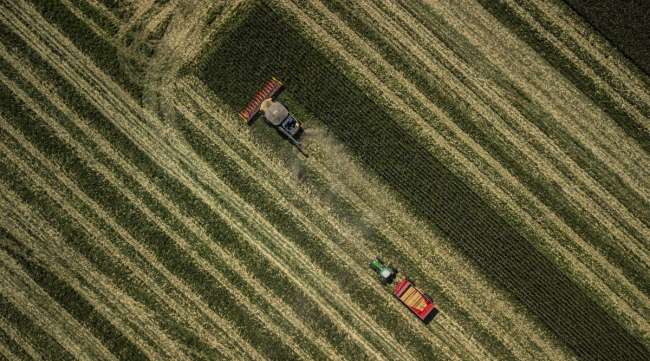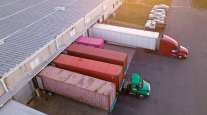Bloomberg News
Satellites Are Helping to Track Food Supplies in the Coronavirus Era

[Ensure you have all the info you need in these unprecedented times. Subscribe now.]
As the coronavirus pandemic leads to anxiety over the strength of the world’s food supply chains, everyone from governments to banks is turning to the skies for help.
Orbital Insight, a California-based Big Data company that uses satellites, drones, balloons and cell phone geolocation data to track what’s happening on Earth, has seen inquiries about monitoring food supplies double in the past two months, according to James Crawford, founder and CEO of the company.
“We’re helping supply chain managers, financial institutions, and government agencies answer questions they never thought they would have to ask,” Crawford said in a phone interview.
The coronavirus outbreak has triggered a fresh surge in demand for alternative data to shed light on how the pandemic is impacting industries and trade across the globe. That’s especially important as multiple government lockdowns and tighter restrictions on the movement of people and goods upend supply chains and logistics everywhere from Asia to Europe and the Americas.
Risks to food supply chains are becoming more noticeable as millions of people around the world are affected by government-imposed lockdowns, causing logistical nightmares, and as infections spread including among workers that are responsible to getting food from farms to supermarket shelves.
Truckers in Europe are enduring lengthy wait times, thousands of shipping containers are piling up in a rice port in the Philippines, and curfews in Guatemala and Honduras may slow shipments of specialty coffee. In the U.S., the world’s biggest pork producer is warning of meat shortages after the virus outbreak among employees forced a major plant to shut, while India said shipments of sugar may slow due to a lack of labor at ports and mills.
Orbital customers have been asking for data such as when cargo ships leave ports, when plants close, and the number of passengers traveling through airports. As infections continue to spike, clients in recent weeks began concentrating on tracking grocers, wholesalers, and distribution centers to monitor everything from food supplies to the production of medical supplies at specific factories, Crawford said.
It’s not just those looking to monitor supply chains that have turned to alternative data. Companies seeking to strike deals at a time when quarantine is preventing in-person meetings are also edging toward unusual methods to get more information. Coty Inc. owns brands such as Wella and OPI. Suitors for its professional beauty unit are considering conducting due diligence by flying drones across manufacturing facilities, according to people with knowledge of the matter.
Early Detection
Unilever NV, which counts on Orbital to improve the traceability of raw materials along its supply chains, is using technology such as crawlers and artificial intelligence to comb through millions of deliveries and thousands of suppliers to spot potential risks or shortages.
The consumer goods giant is looking for warning signs by analyzing delivery patterns to see if suppliers are struggling to keep up with demand and checking suppliers’ financial health so it can quickly look for alternatives, said Marc Engel, chief supply chain officer at Unilever.
“It’s all about can I get my raw materials, do I have enough people to run my factories, and can trucks drive across countries to deliver the goods,” Engel said by phone from London. “You can sit and wait around until it happens, but then you’re usually too late.”
Want more news? Listen to today's daily briefing:




